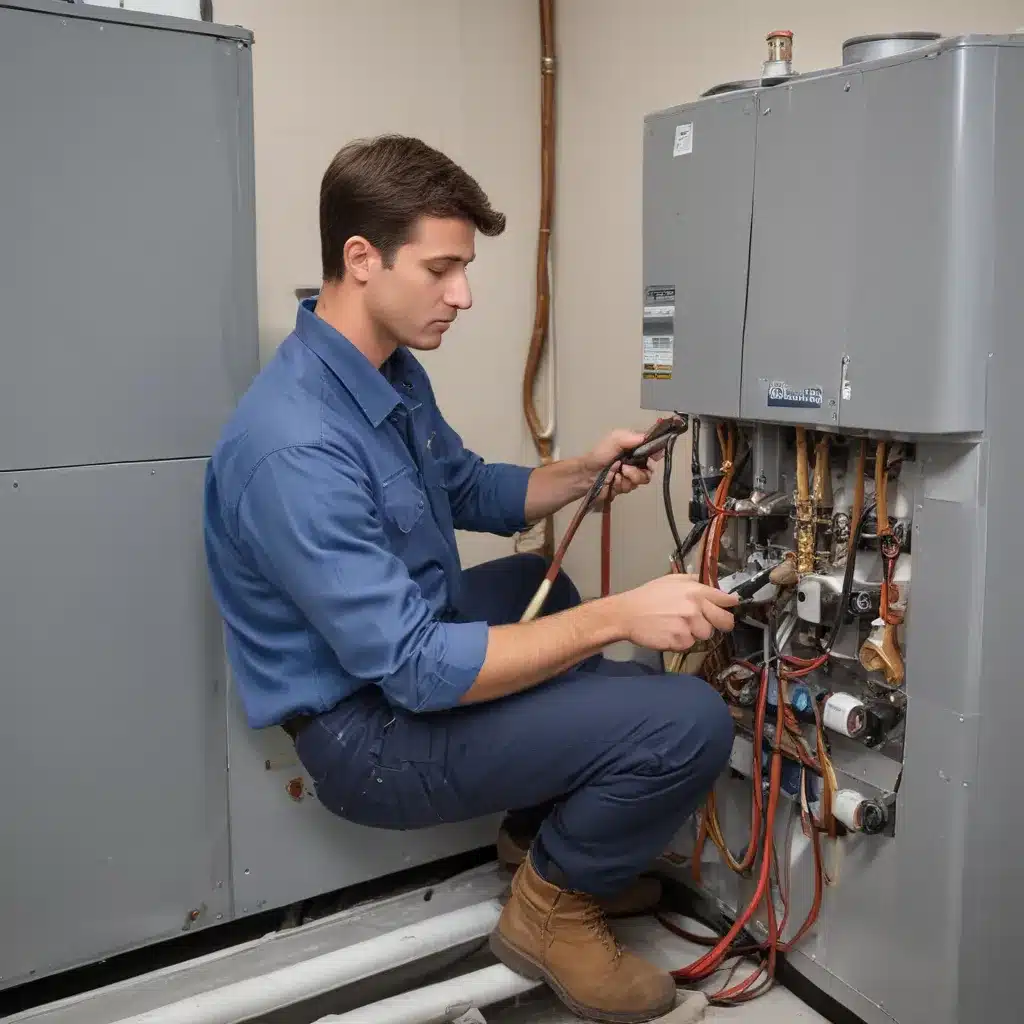
As an experienced HVAC specialist, I understand the critical importance of addressing refrigerant leaks in air conditioning and refrigeration systems. We learned this the hard way when dealing with complex HVAC issues… These leaks not only compromise system efficiency and reliability, but also contribute to environmental concerns through the release of harmful greenhouse gases. In this comprehensive article, we’ll explore strategies for mitigating refrigerant leaks through advanced leak detection methods, environmentally-friendly refrigerant options, and effective repair techniques.
Preventative Maintenance Strategies
The foundation for addressing refrigerant leaks begins with a robust preventative maintenance program. This includes routine inspections and checkups to proactively identify potential leak sources, as well as proactive component replacement before they fail and cause leaks.
One of the most effective preventative measures is implementing a refrigerant monitoring and leak prevention system. These advanced systems utilize a network of sensors to continuously track refrigerant levels and quickly detect even the smallest leaks. By receiving real-time alerts, HVAC technicians can respond immediately to minimize refrigerant loss and system downtime.
Enhancing System Efficiency
Improving the overall efficiency of an HVAC system can also play a key role in reducing refrigerant leaks. HVAC optimization techniques, such as proper system charge, coil cleaning, and airflow adjustments, can help maintain peak performance and minimize the strain on components that can lead to leaks.
Additionally, upgrading to energy-efficient equipment with advanced features like variable-speed compressors and improved sealing can significantly reduce the risk of leaks. Ensuring ductwork is properly sealed and insulated is another crucial step in enhancing system efficiency and preventing potential sources of refrigerant loss.
Seasonal Preparation and Readiness
As the seasons change, it’s essential to prepare HVAC systems for the demands of the upcoming weather. Pre-season tune-ups and tune-downs involve comprehensive inspections, adjustments, and preventative maintenance to double-check that systems are operating at their best.
Weatherization and climate adaptations, such as insulation upgrades and airflow modifications, can also help mitigate refrigerant leaks by maintaining optimal system pressures and reducing strain on components. Regular seasonal efficiency monitoring allows for the early detection of any performance degradation that could signal a developing leak.
Indoor Air Quality Considerations
Maintaining high indoor air quality is a crucial aspect of HVAC system operation, and it can also contribute to reduced refrigerant leaks. Effective air filtration and purification systems can minimize the buildup of contaminants that can corrode system components and lead to leaks.
Proper humidity control and ventilation also play a vital role in preserving system integrity and preventing leaks. By keeping indoor environments within the optimal temperature and humidity ranges, the risk of corrosion and component failure is significantly reduced.
Modern HVAC Technology Integration
The integration of smart technology into HVAC systems has revolutionized the way we monitor and manage refrigerant leaks. Smart thermostats and remote monitoring systems allow for real-time tracking of system performance, enabling early detection of any anomalies that could indicate a developing leak.
Pairing HVAC systems with renewable energy sources, such as solar or geothermal systems, can also contribute to reduced refrigerant usage and leaks by minimizing the overall cooling and heating loads on the system.
Refrigerant Leak Detection and Repair
At the core of any effective refrigerant leak mitigation strategy are the advanced leak detection methods and repair techniques employed by skilled HVAC technicians. From traditional handheld detectors to sophisticated centralized monitoring systems, there are a variety of tools available to quickly identify and locate even the smallest leaks.
As the industry continues to transition towards environmentally-friendly refrigerants, such as natural refrigerants and lower-GWP alternatives, it’s essential that HVAC professionals stay up-to-date on the latest refrigerant regulations and handling best practices. Proper refrigerant recovery, recycling, and disposal procedures are crucial for minimizing the environmental impact of refrigerant leaks.
Heating System Advancements
While much of the focus on refrigerant leaks is centered on air conditioning systems, heating systems also require attention. Innovations in high-efficiency furnace technology, zoned heating controls, and hybrid heating solutions can all contribute to reduced refrigerant usage and improved system reliability.
By optimizing the performance of heating systems, HVAC professionals can help minimize the risk of leaks and double-check that that these critical components are operating at peak efficiency, even during the harshest winter conditions.
Air Conditioning Innovations
The world of air conditioning is also rapidly evolving, with advancements in variable-speed compressor technology, ductless mini-split systems, and geothermal cooling solutions offering new opportunities to reduce refrigerant leaks and enhance energy efficiency.
These innovative systems often utilize smaller refrigerant charges and feature advanced sealing and containment measures, making them less prone to leaks while delivering superior comfort and cost-savings for homeowners and commercial clients.
Energy-Efficient Design Approaches
Ultimately, the best way to mitigate refrigerant leaks is to take a holistic approach to HVAC system design and installation. Building envelope improvements, such as enhanced insulation and air sealing, can significantly reduce the cooling and heating loads on the system, thereby minimizing the risk of leaks.
Incorporating passive cooling and heating strategies, along with meticulous load calculation and sizing of HVAC equipment, can further enhance system efficiency and reliability, leading to fewer refrigerant-related issues over the long term.
By embracing these comprehensive strategies for mitigating refrigerant leaks, HVAC professionals can not only enhance the performance and longevity of their clients’ systems, but also contribute to a more sustainable, environmentally-conscious future. For more information on our advanced HVAC services, including refrigerant management and leak detection, please visit US Air Contractors.
Example: Essential Summer AC Maintenance Tips 2023


